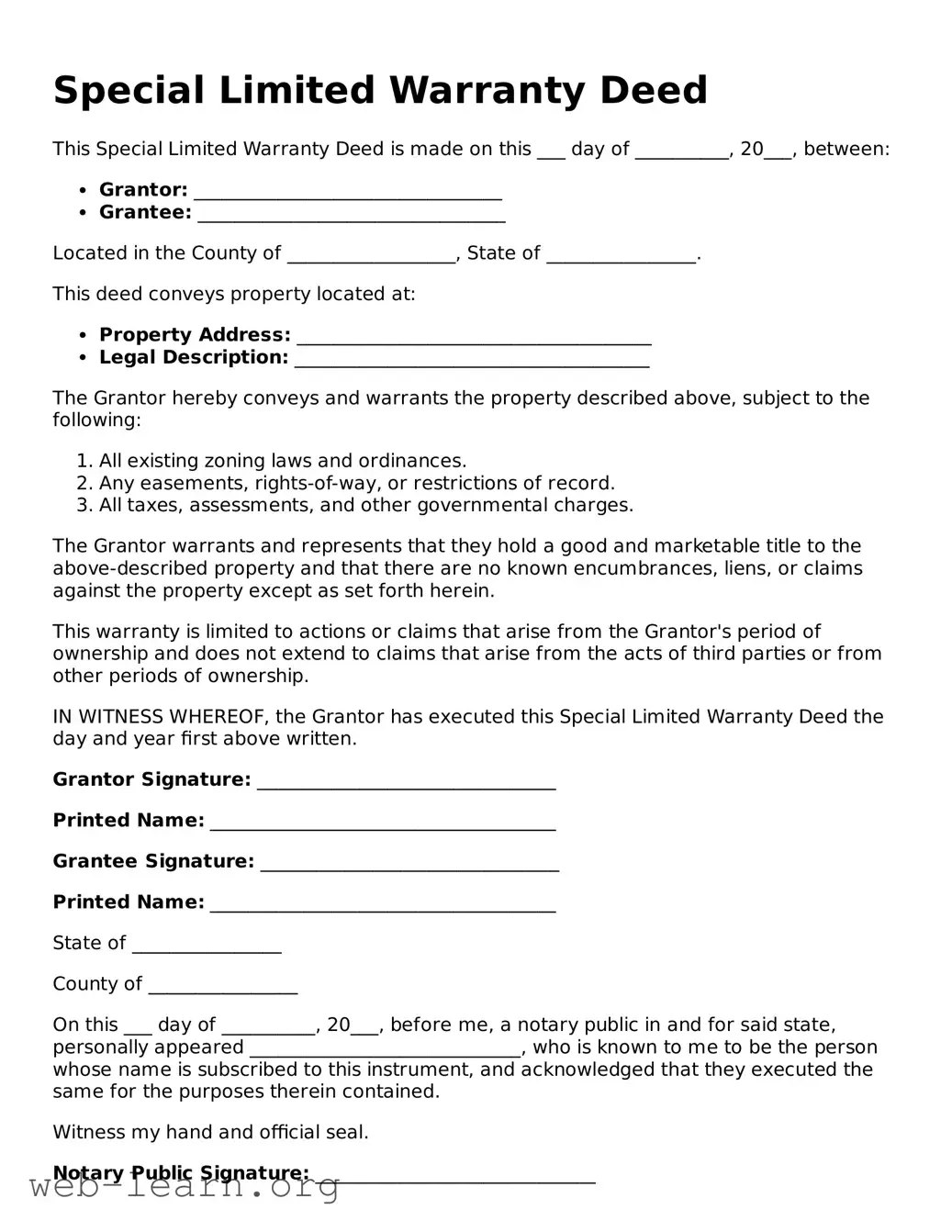Special Limited Warranty Deed
This Special Limited Warranty Deed is made on this ___ day of __________, 20___, between:
- Grantor: _________________________________
- Grantee: _________________________________
Located in the County of __________________, State of ________________.
This deed conveys property located at:
- Property Address: ______________________________________
- Legal Description: ______________________________________
The Grantor hereby conveys and warrants the property described above, subject to the following:
- All existing zoning laws and ordinances.
- Any easements, rights-of-way, or restrictions of record.
- All taxes, assessments, and other governmental charges.
The Grantor warrants and represents that they hold a good and marketable title to the above-described property and that there are no known encumbrances, liens, or claims against the property except as set forth herein.
This warranty is limited to actions or claims that arise from the Grantor's period of ownership and does not extend to claims that arise from the acts of third parties or from other periods of ownership.
IN WITNESS WHEREOF, the Grantor has executed this Special Limited Warranty Deed the day and year first above written.
Grantor Signature: ________________________________
Printed Name: _____________________________________
Grantee Signature: ________________________________
Printed Name: _____________________________________
State of ________________
County of ________________
On this ___ day of __________, 20___, before me, a notary public in and for said state, personally appeared _____________________________, who is known to me to be the person whose name is subscribed to this instrument, and acknowledged that they executed the same for the purposes therein contained.
Witness my hand and official seal.
Notary Public Signature: ______________________________
My Commission Expires: _____________________________
